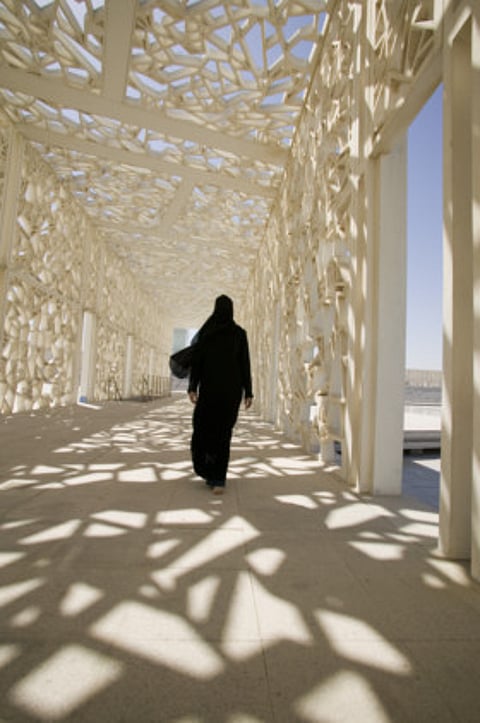Teaching them to fish
Knowledge replaces hydrocarbons as Qatar seeks to build its future on a more bankable, sustainable resource

Qatar may be best-known for its enormous gas reserves, but a new project to educate millions of children worldwide will see the state earn a name in global education.
For the past 15 years the country has been working to replace oil and gas with education as its mainstay for the foreseeable future. Spearheaded by the Qatar Foundation for Education, Science and Community Development (QF) and backed by the government, the Gulf state’s aim is to evolve from carbon-dependent to a knowledge-fuelled economy.
In 2008, the Qatar government spent 5 per cent of its GDP on education, making it second only to Saudi Arabia among the GCC countries on this metric. While recent figures have not been released, Qatar’s National Vision 2030 (QNV) highlights education as one of the two core pillars of development (alongside health) that is set to meet the highest global standards.
The QNV funnels vast revenues from the country’s hydrocarbon resources into developing human resources — a priority for the next 20 years. Extensive reform has also seen Qatar redesign its education system via the Supreme Education Council, instituted in 2002, and the Qatar University reforms of 2003. As a result of the government’s efforts to offer world-class education, QF’s Education City has continued to expand with the establishment of top-class international university branch campuses — including Carnegie Mellon, Georgetown University School of Foreign Service and Texas A&M, among others — hand-picked to strengthen Qatar’s capacity in innovative education and research.
Additionally, in 2008 the Qatar Science & Technology Park was established as part of Education City to act as a connection between the universities and the industry. According to a UN e-government survey earlier this year, Qatar has a 94.72 per cent literacy rate, with gross enrolment at 57.41 per cent. Furthermore, attendance from kindergarten to high school is also mandatory for all citizens. In recent years, institutions have also been established to support low-income families and disabled individuals through education and job training programmes.
Together, these institutions attract both Qataris and international students.
Global showcase
Research and innovation is integral to Qatar’s education framework, with QF funding generous research grants to academics working in different fields, a prime attraction for renowned educational institutions and academics looking to expand and build on their own body of work.
With fewer than two million residents, of which roughly 300,000 are Qatari, no other comparably sized nation in the world has such an outsized impact on the globe when it comes to economy, Arab culture and diplomacy. And now education.
The nation set a major global precedent when it hosted the World Innovation Summit for Education (Wise). Positioned as an international, multi-sectoral platform for creative thinking, debate and purposeful action to build the future of education through innovation, Wise is now an ongoing initiative and a global reference in new approaches to education.
Educating the world
At the recently concluded fourth edition of Wise, Qatar sent out a strong message to the world. From the podium within the cavernous Qatar National Convention Centre theatre, Shaikha Mouza announced that the Gulf state will endeavour to educate 61 million children worldwide who have no access to formal schooling. Introduced under the Educate a Child (EAC) initiative, also launched at the Wise summit, the programme is partnering with the world’s top organisations to bring high-quality learning to children affected by extreme poverty, conflict, natural disaster, prejudice, or any of the factors that can make them hard to reach by conventional means.
So far, QF’s EAC initiative is already supporting 25 projects in countries across Africa, Asia and the Middle East, usually on a matching funding basis.
At the time of its launch, some 500,000 children in EAC-funded projects have been positively impacted. Speaking at the launch, Shaikha Mouza said: “Right now, millions of children are being robbed of their fundamental right to quality education. Our mission is to turn attention back to the disadvantaged children of today who could become confident adults tomorrow, able to fulfil their potential — if we just give them the opportunity.”
Trailblazers
Wise has been an indicator of Qatar’s growing clout in the education space both regionally and internationally. In the four short years since the event’s inception, it has earned the moniker of the Nobel Prize of Education, with the past four recipients receiving $500,000 (Dh1.83 million) and a specially minted gold medal. Each of the award’s laureates has blazed significant trails in their respective nations, inspiring other educators looking to impact their own initiatives and communities across the world.
The comments at this year’s conference by Dr Shaikh Abdullah Bin Ali Al Thani, Chairman of Wise, reflect Qatar’s drive to create and foster knowledge exchange, which will redefine the way the world will interact in the future. “In many parts of the world outstanding initiatives have broken the status quo and given young people the prospect of a better life,” he said.
“The gains extend to entire communities. We want these good practices to be recognised and replicated. It is essential that the messages reach decision makers and thought leaders who are in a position to introduce change, and we also want to raise awareness among the general public that change is both necessary and possible.”



